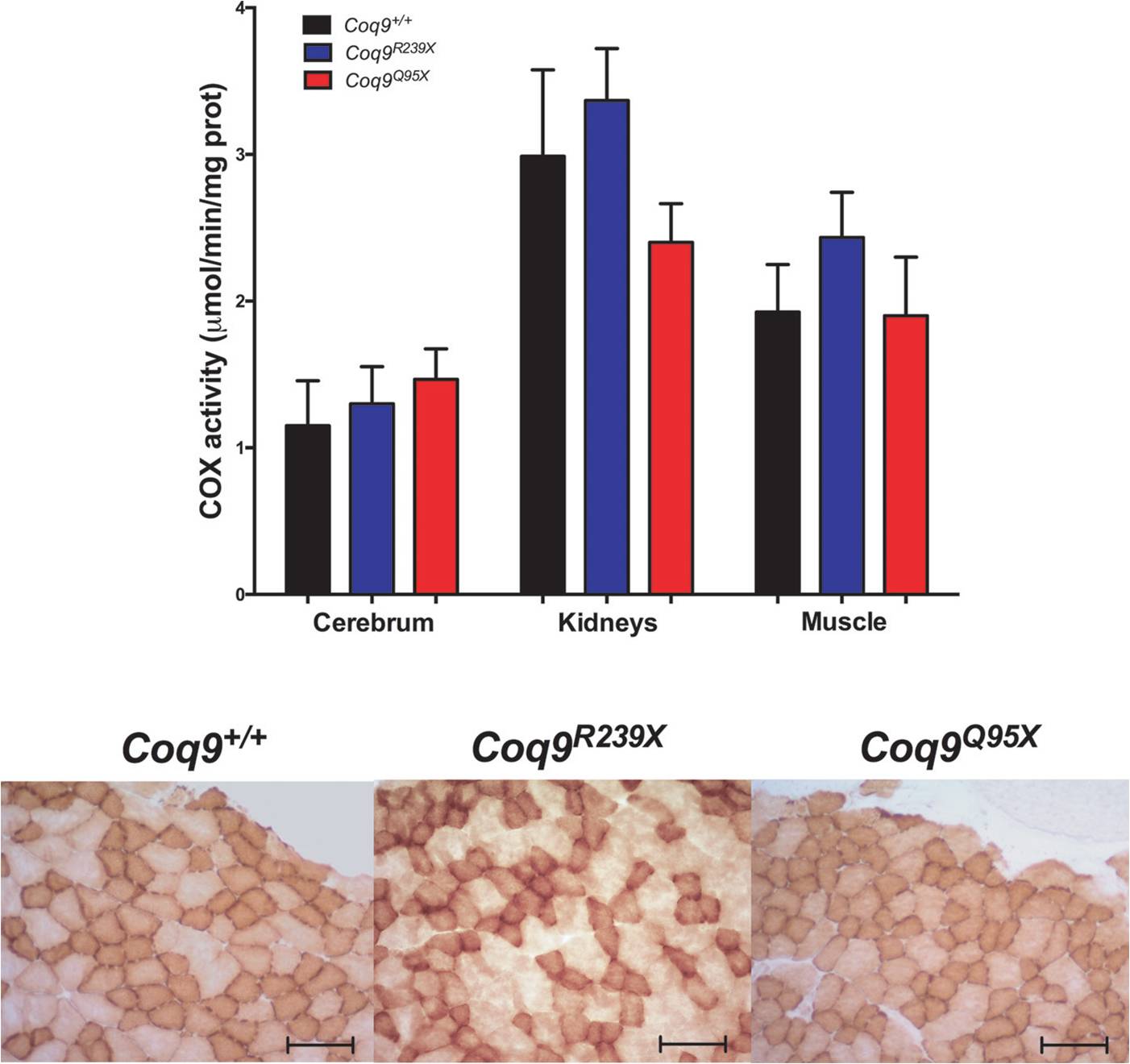Coenzyme Q (CoQ) is a key component of the mitochondrial respiratory
chain, but it also has several other functions in the cellular
metabolism. One of them is to function as an electron carrier in
the reaction catalyzed by sulfide:quinone oxidoreductase (SQR),
which catalyzes the first reaction in the hydrogen sulfide oxidation
pathway. Therefore, SQR may be affected by CoQ deficiency. Using
human skin fibroblasts and two mouse models with primary CoQ
deficiency, we demonstrate that severe CoQ deficiency causes a
reduction in SQR levels and activity, which leads to an alteration
of mitochondrial sulfide metabolism. In cerebrum of Coq9R239X
mice, the deficit in SQR induces an increase in thiosulfate sulfurtransferase
and sulfite oxidase, as well as modifications in the
levels of thiols. As a result, biosynthetic pathways of glutamate,
serotonin, and catecholamines were altered in the cerebrum, and
the blood pressure was reduced. Therefore, this study reveals the
reduction in SQR activity as one of the pathomechanisms associated
with CoQ deficiency syndrome


